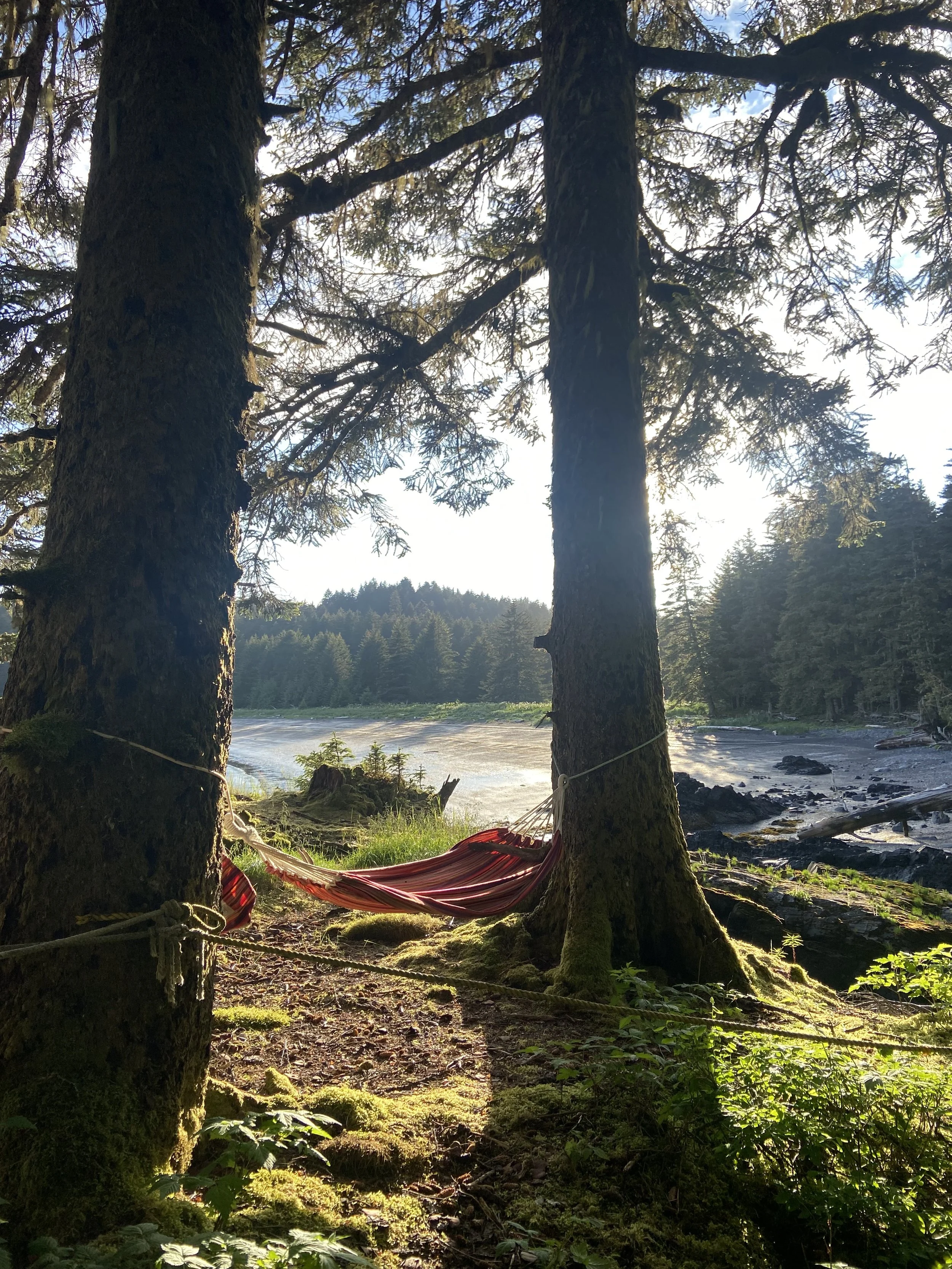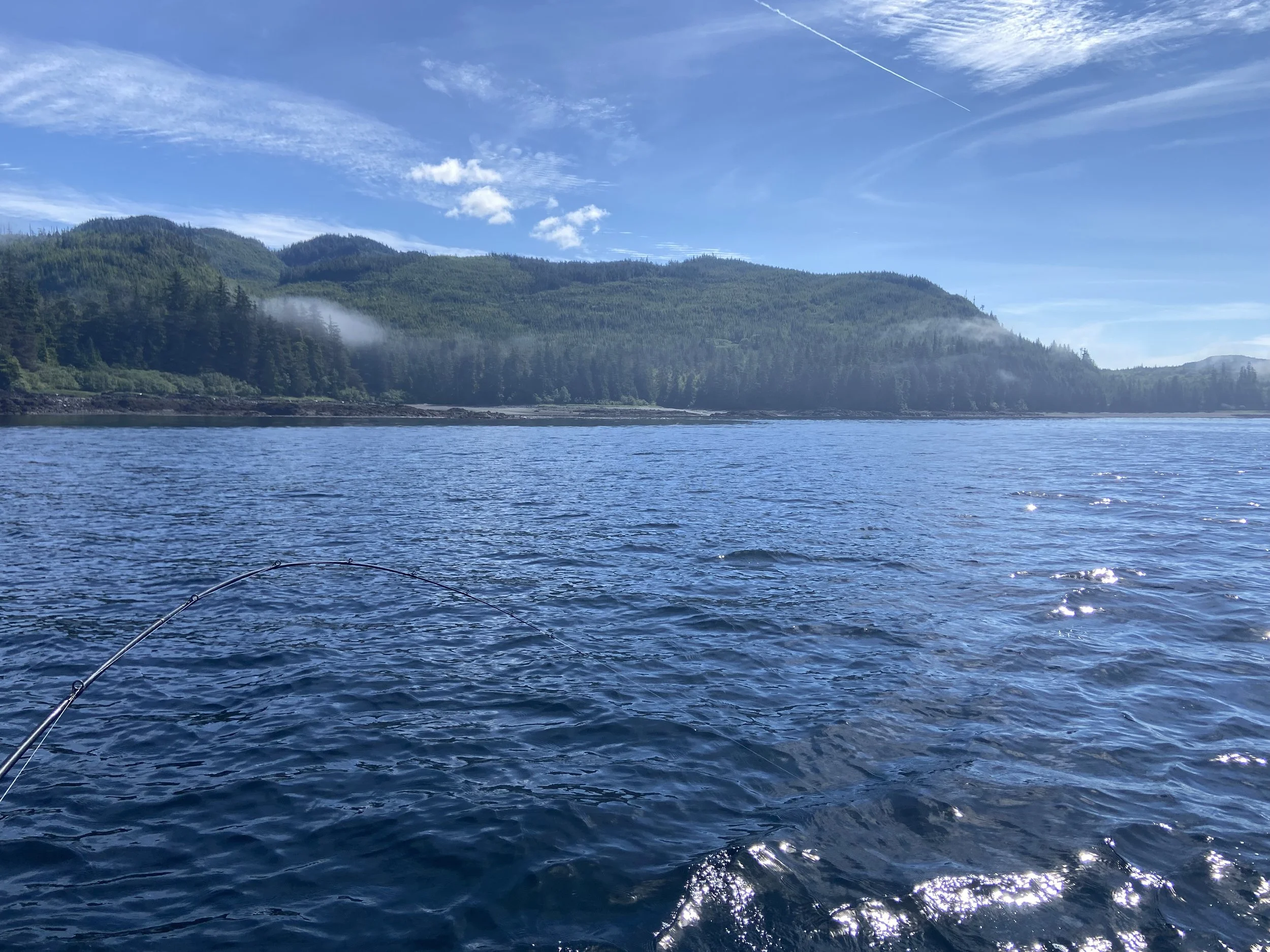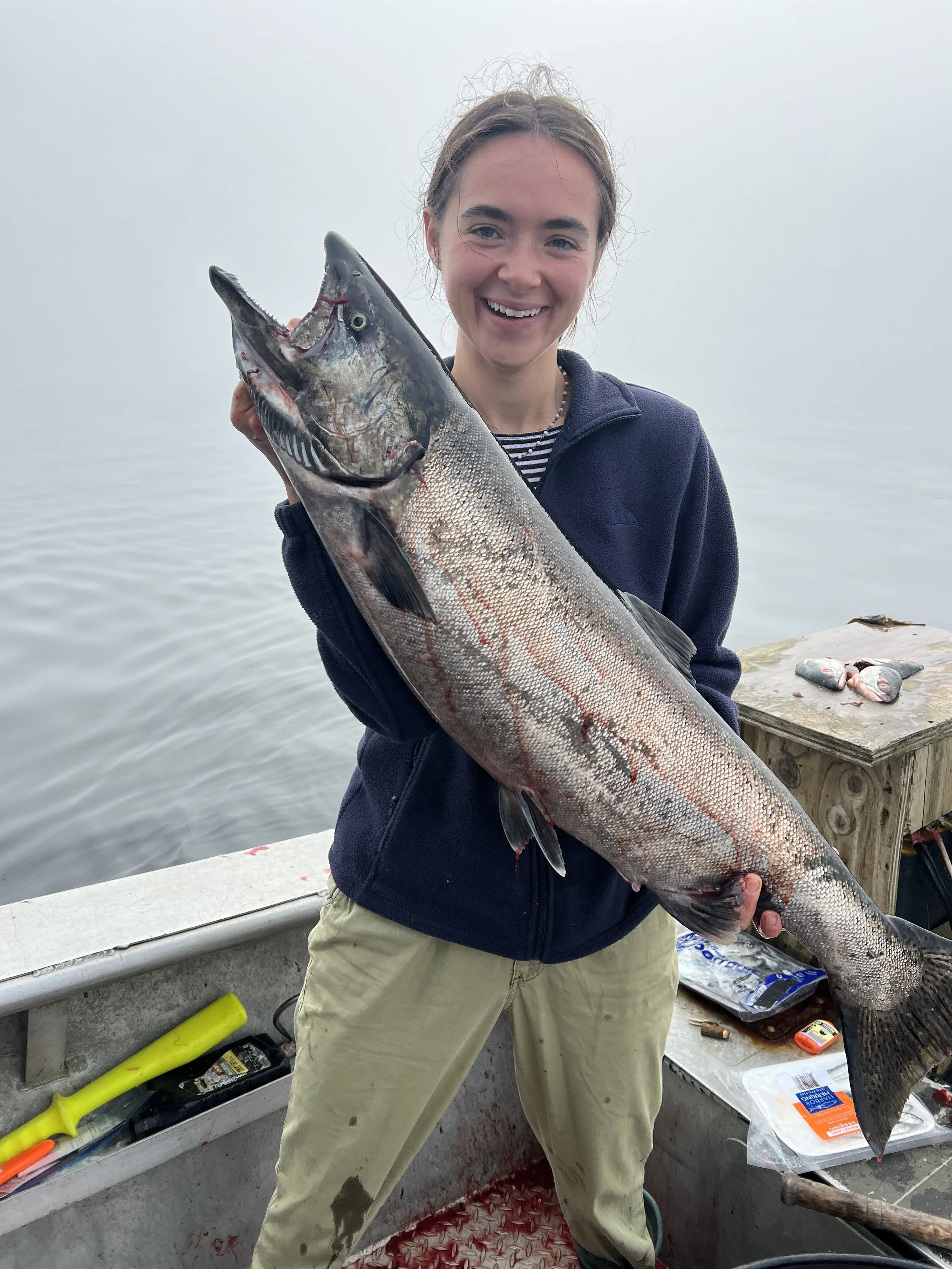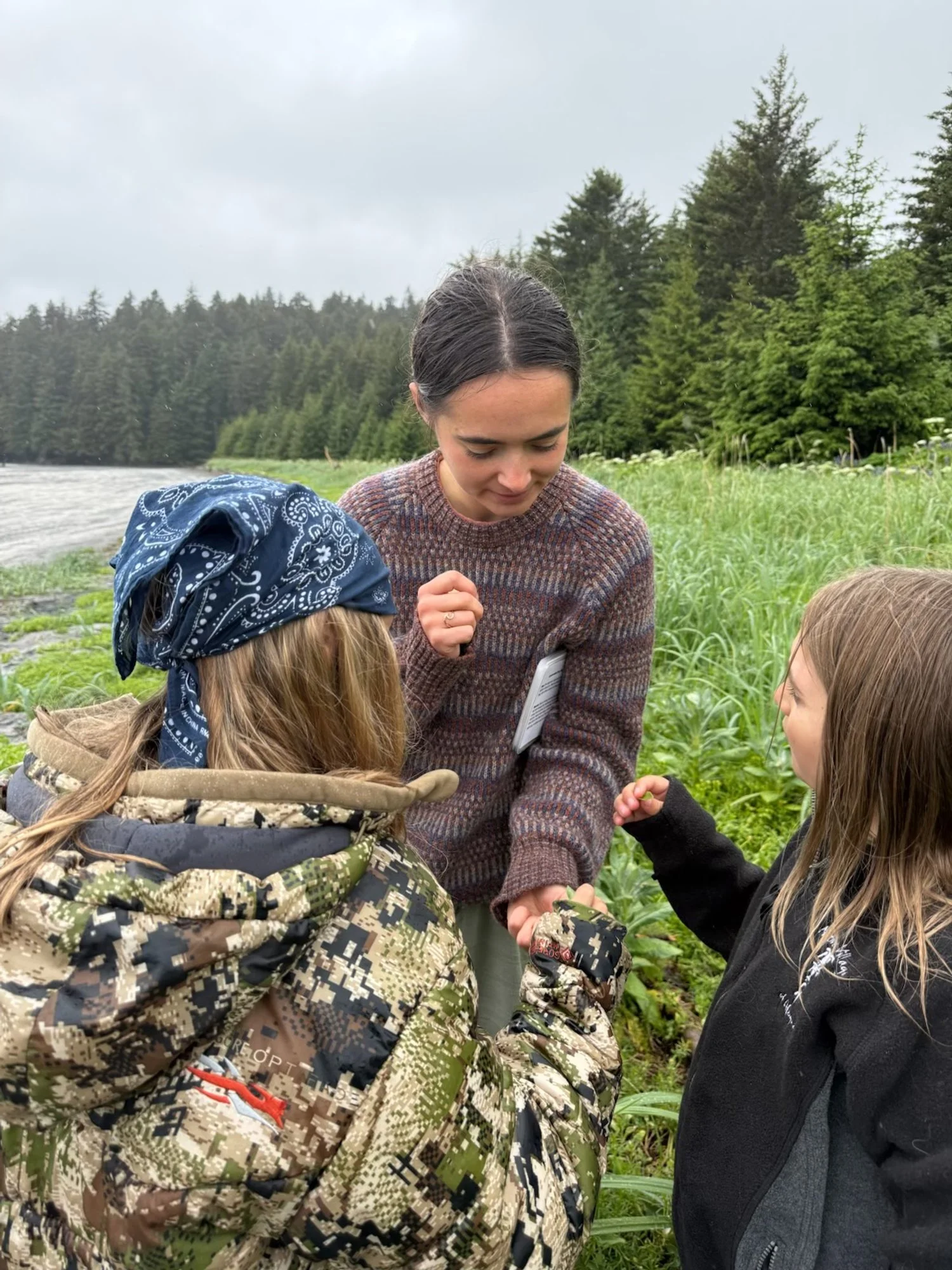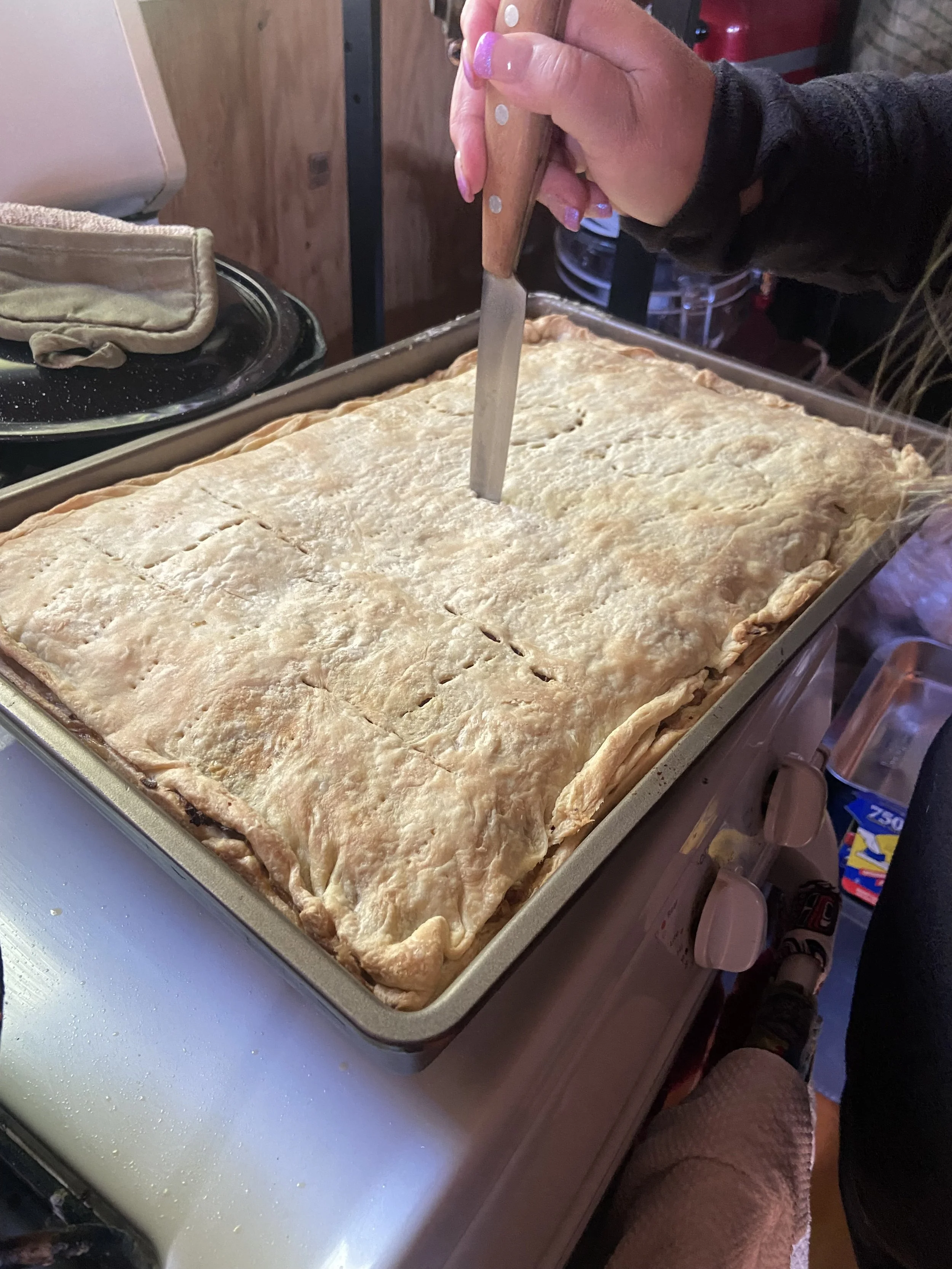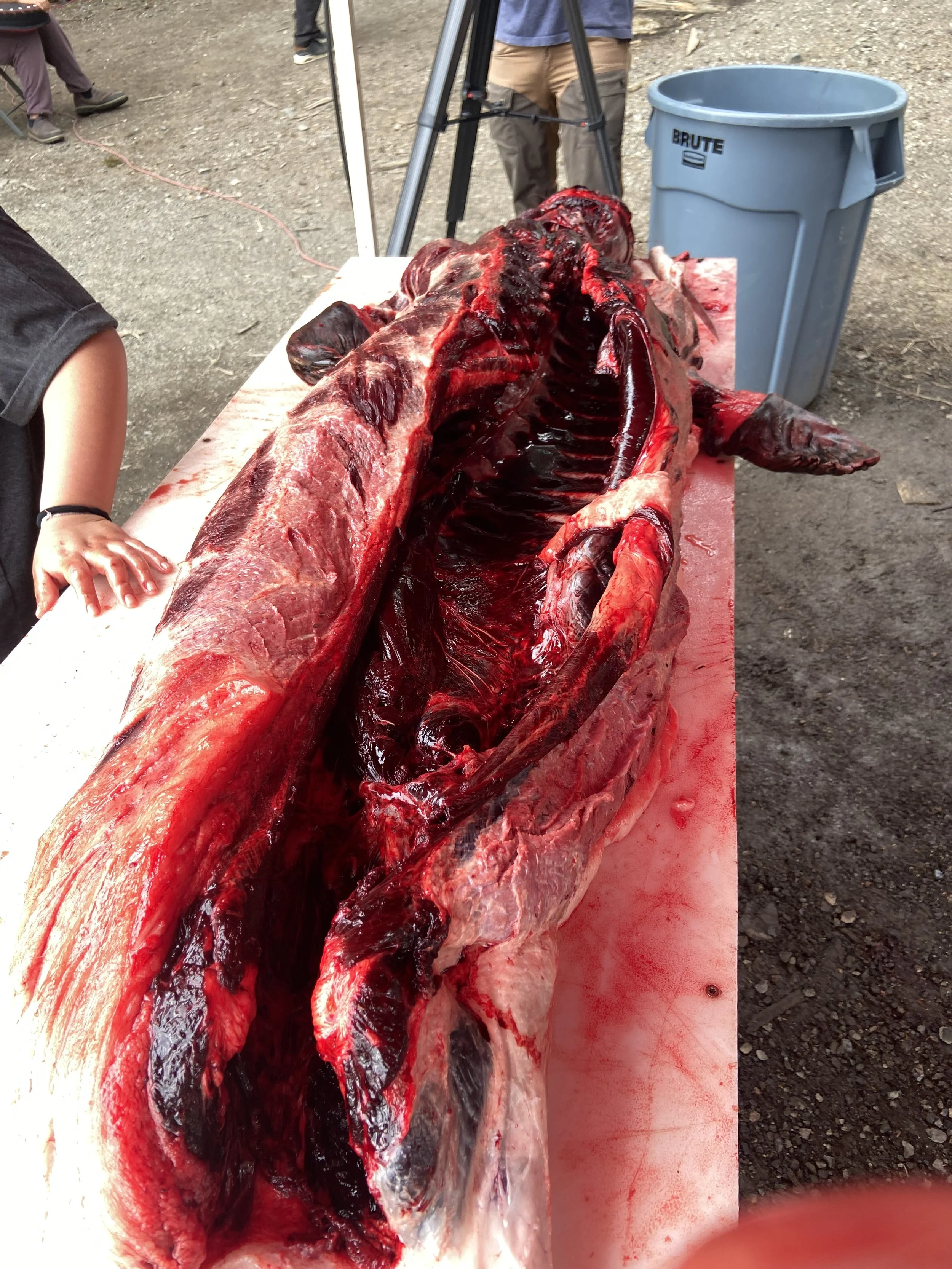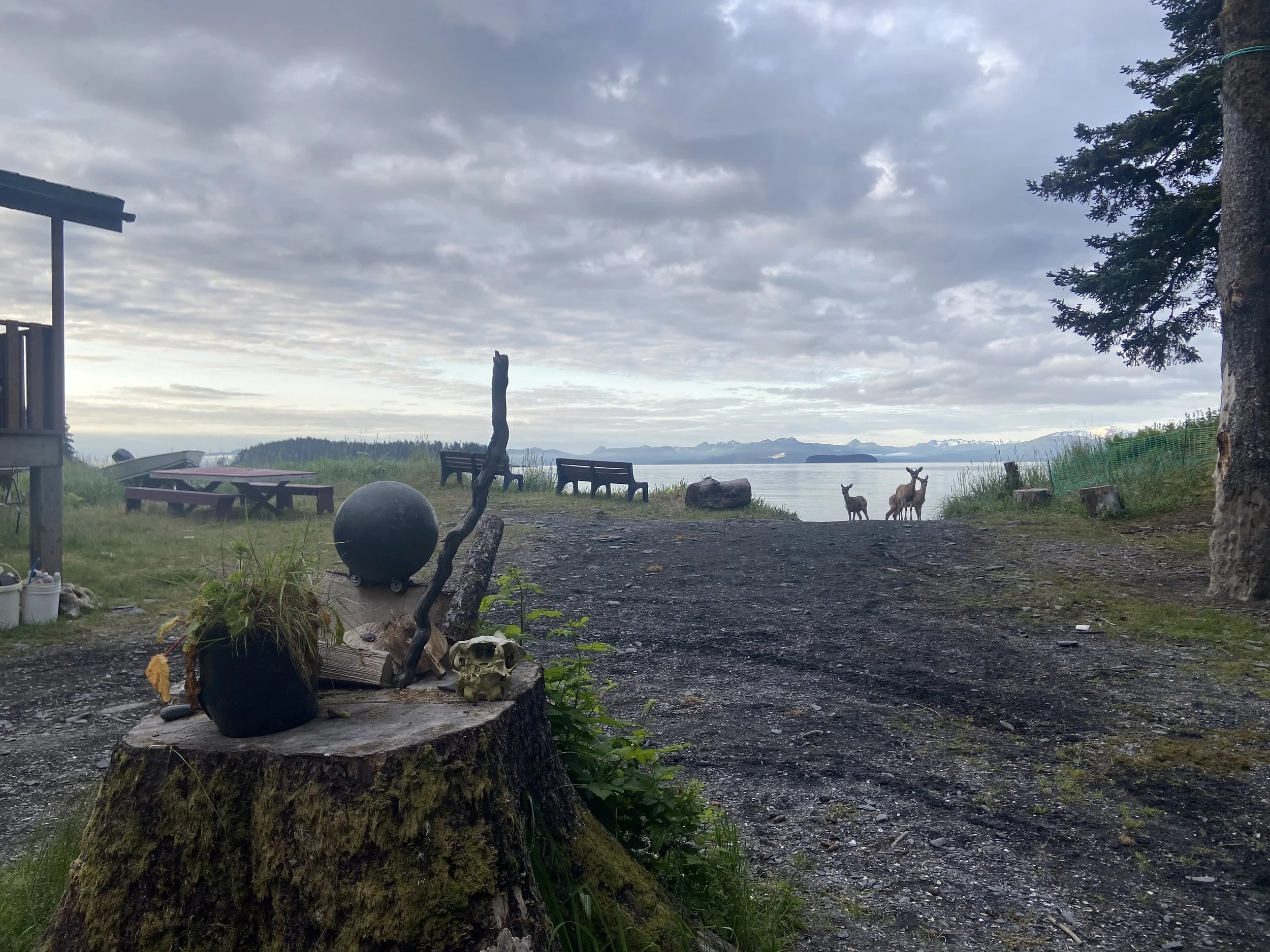The Culture Camp Circuit
Before heading out to the villages on Kodiak for our traditional plant workshops this summer, I had the opportunity to hit a couple spots on the “culture camp circuit” :) and went to the Dig Afognak Culture camp run by the Native village of Afognak and the Kake culture camp run by the Organized Village of Kake.
These culture camps are something special- an opportunity to gather around our children and support them in standing up as young ones in our culture and also an opportunity to be in good community with one another. I met some amazing folks and am amazed at how awesome these culture camps are. When I was born, my dad- Fr. Athanasius Kone- was helping coordinate the KANA spirit camps run on Spruce Island. This is actually when our family first encountered Father Herman, and my mother was healed by his spring. So the chance to go to these camps in my adulthood as I return home, and to be welcomed as a community member, healed my heart in more ways than I could have hoped. I am so honored that I got to go! And I had the best time.
Over time, the spirit camps my Dad was involved in evolved into culture camps that are now run across many communities in Kodiak. Now, they are week-long camps for children to learn cultural activities and spend time on the land. Each camp looks different and is a unique example of the evolution of our culture that is dictated by a community’s access to land, culture, subsistence mentors and resources, funding, priorities, and many other factors.
The two camps that I went to were vastly different and it would be interesting to examine and compare those differences in depth, but here are some big positive commonalities that I noticed while attending both camps this summer:
Organization is key, not just for the camp as a whole (which is definitely an immense effort, with all hands on deck) but also as an attendee. Experiencing these camps as an adult showed me how organized my ancestors must have been. To live without our modern conveniences in constrained spaces with an entire community
I think these camps are as close to the traditional village lifestyle of our ancestors as we can get, and they are healing. The chance to be caught up in the community of it all, including the communal sleeping spaces and gathering areas. Always surrounded by your community and the tasks needed to keep the place running. There is always something to do or someone to talk to and a sense of purpose or urgency or the relaxed joy of having contributed to getting something completed. All problems emerge from within the microcosm of the community, and so the solution also lies right there in our ability to work together to solve it.
The importance of the matriarchy. There are some powerful women using their organizational and diplomatic skills to make these camps happen. At the Dig Afognak camp, the entire camp is tightly structured around the central women who are keeping tabs on everything and everyone and ensuring that things go as smoothly as possible. Making lists, facilitating conversations, managing emotions, scheduling and coordinating. These are things that happened within the top matriarchy web that ensures things keep moving. I wasn’t as integrated with the upper workings of the Kake camp, but I did get to see the powerful aunties at work behind the scenes- coordinating subsistence activities and social media posts to keep things moving.
I am trying to mention the matriarchy in a non-toxic way. The men at camp were equally as important, such as all the men carrying out subsistence activities to bring in food at the Kake culture camp. They just weren’t quite as integrated in centralized, managerial positions but they had their roles and tasks, such as protecting the camp from bears, teaching, and guiding different tasks and more physical activities. It was a beautiful reminder of what gender roles can be when not degraded by Western culture.
I am sure this is so much more to mention and think about as I process all of these beautiful experiences, but the gist of the matter is that I am so grateful for the opportunity to go to these camps and to learn and be part of those communities. I am proud of my community for prioritizing our culture and our children in this way (and for so long- Kake is on their 37th culture camp this year!!). And I learned so much! I got to go fishing, I got to help process Deer and Seal, and lead foraging groups on the beach. I got to spend time with some of the most amazing Indigenous minds putting their crafty Native brains right to work ;) and to mingle with overall amazing groups of people at both camps.
I am so glad that I got to experience this village way of life so soon after coming home, and it is all such a beautiful reminder of what we are fighting for and who we are fighting with. Quyanaa!!
Dig Afognak Deer
